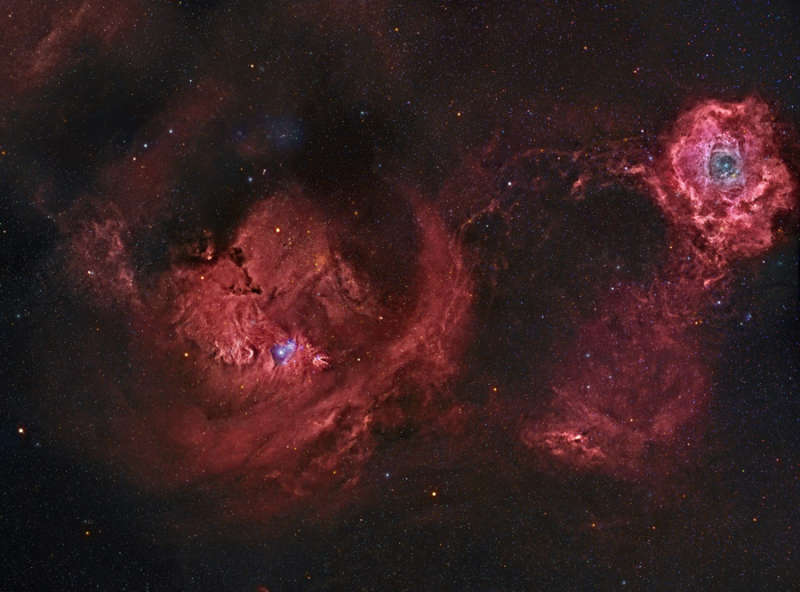
|
Credit & Copyright: Rogelio Bernal Andreo
(Deep Sky Colors)
Explanation:
What surrounds the florid Rosette nebula?
To better picture this area of the sky, the
famous flowery
emission nebula
on the far right has been captured recently in a deep and
dramatic wide field image that features several other sky highlights.
Designated NGC 2237, the center of the
Rosette nebula is populated by the bright blue stars of
open cluster NGC 2244, whose
winds
and energetic light are evacuating the nebula's center.
Below the famous flower, a symbol of
Valentine's Day, is a
column of dust and gas that appears like a rose's stem
but extends hundreds of light years.
Across the
above
image, the bright blue star just left and below the center is called
S Monocerotis.
The star is part of the open cluster
of stars labelled NGC 2264 and known as the
Snowflake cluster.
To the right of S Mon is a dark pointy featured called the
Cone nebula, a nebula likely shaped by winds flowing
out a massive star obscured by dust.
To the left of S Mon is the
Fox Fur nebula, a tumultuous
region created by the rapidly evolving Snowflake cluster.
The Rosette region, at about 5,000
light years distant, is about twice as far away as the region surrounding S
Mon.
The entire field
can be seen with a small telescope toward the
constellation of the
Unicorn
(Monoceros).
Note:
Take
an Astronomy Class Online for Free
|
January February March April May June July August September October November December |
| |||||||||||||||||||||||||||||||||||||||||
NASA Web Site Statements, Warnings, and Disclaimers
NASA Official: Jay Norris. Specific rights apply.
A service of: LHEA at NASA / GSFC
& Michigan Tech. U.
Based on Astronomy Picture
Of the Day
Publications with keywords: Rosette Nebula
Publications with words: Rosette Nebula
See also:
